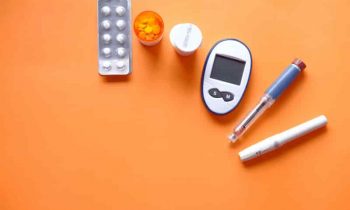Is Red Wine Really Good For You?
Headlines hit that red wine was healthy and suddenly people everywhere were jumping for joy, they thought that their daily indulgences were going to be helping their longevity. Not so fast. While the studies are linking drinking a daily glass of red wine (that’s 5-oz per day) to heart health, the over consumption of alcohol is still associated with a host of horrible side effects.
The Mayo Clinic points out that while red wine may be a heart-healthy option to add to your evening meal, they are not going to be encouraging people to start drinking. This is particularly the case if there is a family history of alcohol abuse or addiction. Too much alcohol can have disastrous effects on the body.
However, if you are already enjoying your glass or red wine with your supper what are the health benefits you may be seeing compared to if what you would see if you switched to say, water? Here are some of the unusual findings that show that red wine may be the best thing to have with your dinner.
Lowers Your Cholesterol
With high fat, diets dominating our food chain it is important to consider anything that may help us find a balance in our life. Red wine may do just that with our cholesterol. Prevention Magazine cites a study that saw a drop in bad cholesterol of 12%. This is a huge decrease, and since cholesterol is linked all types of heart disease, lowering cholesterol may be one of the first steps in the prevention of heart disease later in life.
Resveratrol
This chemical compound found in the skins of grapes can help you keep a sharp memory according to research published in prevention.com. Resveratrol can also help prevent damage to blood vessels and may even be linked to lower risks of inflammation and blood clotting.
Do you need to drink red wine to get resveratrol?
No. Resveratrol is also found in red grapes and grape juice. In addition to other grape products, this heart-healthy chemical compound can be found in foods like blueberries, cranberries, and peanuts. No studies have been done to compare the resveratrol consumption from red wine to those with cranberries, so there is no way to tell if one form of this nutrient is more potent than the other.
Antioxidant
A study in Spain done by the American Journal of Epidemiology determined that those from a pool of 4,000 faculty at Spanish universities, who drank more than 14 weekly glasses of wine a year were 40% less likely to come down with common illnesses like the cold. The antioxidants in the wine are believed to fight infection and protect the cells.
Cancer And Dementia
These two ailments seem to malign our society and any link between a reduced risk of cancer and dementia, and food should be seriously considered. The problem when it comes to studies showing that there are reductions in risk for cancer or dementia with the consumption of red wine?
There are just as many studies that show that many people are at higher risk for cancers if they drink alcohol at all. Therefore, while red wine may reduce the chances of one type of cancer, the consumption of alcohol could increase the likelihood of another kind.
The same can be said of studies relating to dementia and consumption of alcohol. Some studies show that moderate consumption reduces risk, while other studies link any consumption of alcohol to an increased risk of alcohol.
The science is still out on whether or not, red wine can help or hurt you when trying to prevent cancer and dementia. So be skeptical when reading reports that include all or nothing terminology, and don’t include any long-term looks at their evidence.
Is red wine really good for you? If you drink it in moderation, there are some health benefits that you may be seeing as a result. There could also be some health concerns with your consumption of alcohol in general, but those are not directly related to red wine.


 Diabetes Treatment & Prevention
Diabetes Treatment & Prevention 5 Healthy Habits
5 Healthy Habits Aging too Fast?
Aging too Fast? Is Coffee Bad for You?
Is Coffee Bad for You? Natural Remedies
Natural Remedies